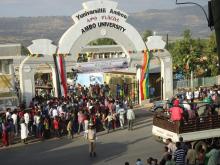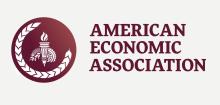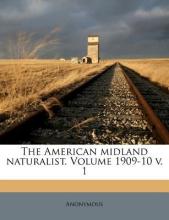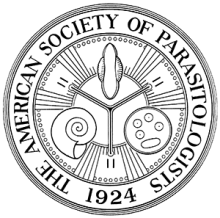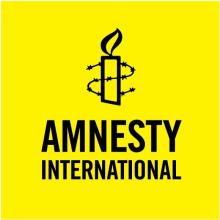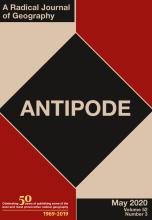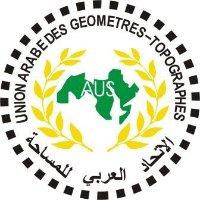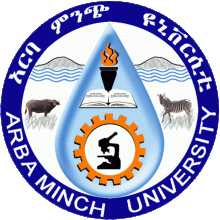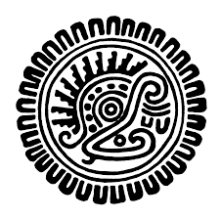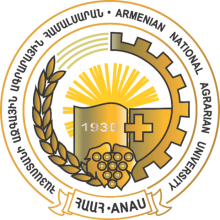A Biblioteca Land Portal inclui recursos de mais de 1.890 provedores de informações nacionais e internacionais. Saiba mais sobre as organizações e instituições que utilizam o Land Portal para partilhar as suas pesquisas, dados e histórias de acesso aberto.
Ambiente e Agua - An Interdisciplinary Journal of Applied Science
Ambo University
Ambo University is a university in Ambo, Ethiopia.
The University was established in May 2011 by Prime Minister Meles Zenawi and the council of ministers.
Source: Wikipedia (d.d. November 9th 2017)
América Latina Genera
Nuestra Historia
En el 2006, el PNUD se planteó la necesidad de enfrentar la gran dispersión de recursos de conocimiento en el tema de género y la falta de intercambio y de sistematización de las experiencias desarrolladas en la región que nos permitiera dar un salto en cuanto a aprendizajes y a la obtención de mejores resultados.
Con apoyo del fondo JWID, se puso en marcha una primera iniciativa que tuvo como principal resultado la creación de este portal América Latina Genera, la ciudad de conocimiento en género: un lugar de encuentro del saber generado por diferentes actores, en diferentes países, sobre diversos temas, todos ellos relacionados con la igualdad de género. Se fue construyendo una ciudad con alcaldía, escuela, biblioteca, taller de herramientas, parque, centro de gobierno, plaza y miles de otros espacios donde se organizaban recursos, debates y experiencias.
La ciudad creció tanto en cuanto a recursos, pero también se tenía que adaptar a demandas tan complejas, que fue necesario reordenarla en diversas ocasiones, en el 2008, en el 2011, en el 2013 y en el 2014, con cambios de secciones, diseño, contenidos y también estructurales.
Pasó de ser un proyecto del programa regional a la columna vertebral del trabajo del Área Práctica de Género del Centro Regional del PNUD para América Latina y el Caribe. Esta área tiene como objetivo impulsar los mandatos corporativos del PNUD en igualdad de género, promoviendo el desarrollo de políticas, proyectos e iniciativas estratégicas que transformen las estructuras, valores y patrones que perpetúan las desigualdades de género en la región y ofreciendo asistencia técnica a nuestras oficinas y asociados con ese mismo fin.
American Economic Association
More than 130 years of Encouraging Economic Research
Once composed primarily of college and university professors in economics, the American Economic Association (AEA) now attracts 20,000+ members from academe, business, government, and consulting groups within diverse disciplines from multi-cultural backgrounds. All are professionals or graduate-level students dedicated to economics research and teaching.
American Midland Naturalist Journal
The American Midland Naturalist was founded in 1909 by Reverend Julius A. Nieuwland, C.S.C., and has been published since by the University of Notre Dame. It is a refereed, broad-spectrum journal publishing basic research in diverse disciplines in biology and varied taxa. The historic name is no longer precisely descriptive, as it includes materials from all of North America and, occasionally, from other areas. An editorial survey identified major topics, as are evident in its list of associate editors, for animal, vegetation and plant population in ecology, mammalogy, animal behavior, herpetology, ornithology, aquatic ecology, parasitology, ichthyology, plant physiology and biological statistics. Articles include field and laboratory studies of life history, distribution, growth, reproduction, behavior, physiology, diet, habitat and myriad other topics of interest to biologists. Approximately one-fourth of the articles published in the American Midland Naturalist are experimental. It is among the most frequently cited journals in publications as diverse as Ecology and Oecologia, Journal of Mammalogy, Herpetologia, Copeia, Journal of Parasitology, Hydrobiologia, Journal of Wildlife Management and numerous others. Its history has been described in The American Midland Naturalist: The Life History of a Journal. American Midland Naturalist, 123:1-31, 1990.
American Samoa Bar Association
We are the licensing body and the official bar association for all of those who practice law in American Samoa. The American Samoa Bar Association serves to promote justice, the rule of law, and the interests of the legal system. We do this through public education, legislative review, promoting the judiciary, and advocating the rule of law. We also offer a legal scholarship to a student that shows exemplary academics and a desire to promote the rule of law in American Samoa.
American Society of Agronomy
The American Society of Agronomy (ASA) is a progressive international scientific and professional society that empowers scientists, educators, and practitioners in developing, disseminating, and applying agronomic solutions to feed and sustain the world. Based in Madison, WI, ASA is the professional home for 8,000+ members and 14,000+ certified professionals (Certified Crop Advisers) dedicated to advancing the field of agronomy. ASA provides information about agronomy in relation to agronomic production, biometry and statistical computing, climatology and modeling, education and extension, environmental quality, global agronomy, and land management and conservation.
Founded in 1907, ASA supports its members and certified professionals by providing peer-reviewed research publications through the Digital Library, educational programs, certifications, meetings, and science policy initiatives via a Washington, DC office. A common thread across the programs and services of ASA is the dissemination and transfer of scientific knowledge to advance the profession.
American Society of Civil Engineers
The American Society of Civil Engineers represents more than 150,000 members of the civil engineering profession in 177 countries. Founded in 1852, ASCE is the nation’s oldest engineering society.
ASCE stands at the forefront of a profession that plans, designs, constructs, and operates society’s economic and social engine – the built environment – while protecting and restoring the natural environment.
Through the expertise of its active membership, ASCE is a leading provider of technical and professional conferences and continuing education, the world’s largest publisher of civil engineering content, and an authoritative source for codes and standards that protect the public.
The Society advances civil engineering technical specialties through nine dynamic Institutes and leads with its many professional- and public-focused programs.
American Society of Parasitologists
The American Society of Parasitologists (ASP) is a diverse group of over 800 scientists from industry, government, and academia who are interested in the study and teaching of Parasitology. Founded in 1924, ASP members have contributed not only to the development of parasitology as a discipline, but also to primary research in systematics, medicine, molecular biology, immunology, physiology, ecology, biochemistry, behavior, and more.
ASP Mission Statement
The Mission of the American Society of Parasitologists is to constantly improve our understanding of parasites, parasitic diseases, and parasitism on a global basis and to disseminate this knowledge worldwide. We achieve this Mission by providing opportunities for all scientists to publish their original findings in the Society's Journal, and to present and discuss new information at the Society's annual meeting, in the ASP's Newsletter, through the ASP's Public Advocacy Network, or in discussion groups on the internet. We educate parasitologists via our Web Page and other educational media produced by the Society. In order to meet our goal to remain a strong focus of scientific exchange across the broad discipline of parasitology, we must actively seek and support new research areas and new members and retain current members, as well as encourage and support continued existence of highly specialized areas of research in parasitology.
ASP Vision Statement
Recognizing that parasitism is the most common form of existence, and that parasites and the diseases they can cause affect the health, development, and evolution of free-living animals and plants, the American Society of Parasitologists seeks to foster the advancement of knowledge in all areas of parasitism. Recognizing the value of this knowledge and the responsibility given to the ASP as a result of understanding parasitism, the ASP seeks to disseminate this knowledge to all who have need of it through our outreach programs with educational systems, governmental, public, and private agencies, as well as during our scientific meetings. To do this, ASP is dedicated to the perpetuation of all areas of the discipline that is parasitology.
Amerindian Peoples’ Association
The Amerindian Peoples Association (APA) is a non-governmental Indigenous Peoples organisation in Guyana. It is primarily an advocacy organisation that seeks to promote and defend the rights of the Indigenous Peoples of Guyana.
Membership of the APA is made up of Units throughout the country, currently amounting to close to eighty such units. The Association is led by an Executive Committee comprising the President, Vice-President, Secretary, Treasurer, Assistant Secretary/Treasurer, thirteen regional representatives, a women’s representative and a youth representative.
The APA has a central office in Georgetown which is staffed by persons from interior communities who carry out the daily functions of the organisation and who provide the link between what is happening in the communities and at the national and international levels.
Goals and Objectives
The objectives of the APA are to promote the social, economic, political and cultural development of Amerindian communities in solidarity with each other and to promote and defend their rights.
The long term goal of the APA is to secure legislative and policy changes to protect indigenous rights in all instances, to promote representation of indigenous peoples by indigenous peoples themselves, to provide information to indigenous communities about their rights under national and international law, to promote the sustainable use of the natural resources by indigenous peoples and to ensure the protection of the environment, to secure participation in development activities and decision making processes that affect the lives of the indigenous peoples of Guyana, and to ensure that the state fulfills its obligations in providing basic services to indigenous communities such as health, education, transportation and communication services.
Amigos de la Tierra
Asociación ecologista sin ánimo de lucro con la misión de fomentar un cambio local y global hacia una sociedad respetuosa con el medio ambiente, justa y solidaria. Somos un grupo de personas que defendemos la justicia social y ambiental; creemos firmemente que el centro de las políticas han de ser las personas y La Tierra. Así, denunciamos y presionamos a empresas y administraciones, a la vez que proponemos diversas soluciones para lograr un mundo más justo.
Amnesty International
Amnesty International is a global movement of more than 7 million people who take injustice personally. We are campaigning for a world where human rights are enjoyed by all.
We are funded by members and people like you. We are independent of any political ideology, economic interest or religion. No government is beyond scrutiny. No situation is beyond hope.
Few would have predicted when we started that torturers would become international outlaws. That most countries would abolish the death penalty. And seemingly untouchable dictators would be made to answer for their crimes.
What does Amnesty do?
We investigate and expose the facts, whenever and wherever abuses happen.
We lobby governments, and other powerful groups such as companies. Making sure they keep their promises and respect international law.
By telling the powerful stories of the people we work with, we mobilize millions of supporters around the world to campaign for change and to stand in defence of activists on the frontline.
We support people to claim their rights through education and training. .
We are introducing a new, global way of working – with a distributed centre and Regional Hubs of research, campaigns and communications – because we owe it to the people we work for to be the most effective force for freedom and justice that we can, globally.
As we develop this process – in line with the long-held desire of our international membership – we will post regular blogs, articles, stories and personal accounts to explain what is happening, and why it is important to those on the human rights front line.
Analyzing Development Issues Centre Cambodia
The Analyzing Development Issues Centre (ADIC) was registered with Cambodia’s Ministry of the Interior on 4 April 2011. ADIC began from the Cooperation Committee of Cambodia (CCC)’s Analyzing Development Issues (ADI) Project in 1999 and transformed as an NGO in 2011. ADIC’s initial goal was to increase the critical thinking skills of NGO staff and their capacity to analyze development issues through development research that contributes to beneficial social change in local communities. Grounding its work in Cambodian economic and social realities and aspiring to fill the niche left open by the ADI Project phase out, ADIC has continued to support NGOs in participatory action research (PAR) and policy studies with vulnerable groups in poor and food insecure provinces. ADIC will likewise continue to democratise policy research and to bridge the gap between policy researchers and NGO development practitioners.
Andhra Pradesh State Government
Government of Andhra Pradesh is the government for the state of Andhra Pradesh in South India.
Source: Wikipedia
Annales de géographie
La revue des Annales de géographie a été fondée en 1891 par Paul Vidal de la Blache. Revue généraliste de référence, elle se positionne à l’interface des différents courants de la géographie, valorisant la diversité des objets, des approches et des méthodes de la discipline. La revue publie également des travaux issus d’autres disciplines (de l’écologie à l’histoire, en passant par l’économie ou le droit), sous réserve d’une analyse spatialisée de leur objet d’étude.
Les articles scientifiques qui sont publiés dans la revue font l’objet d’un processus de sélection rigoureux, reposant sur des évaluations anonymes par deux relecteurs spécialistes des thématiques de l’article, afin de garantir la qualité et l’actualité des recherches publiées. La diversité des profils des 21 membres du comité de rédaction et des 10 correspondants étrangers reflète l’ambition généraliste et internationale de la revue.
Les Annales de géographie constituent l’une des publications françaises les plus diffusées en France et à l’étranger, en version imprimée ou numérique sur le site d’Armand Colin et sur Cairn. La revue publie des textes qui lui sont soumis en français ou en anglais. En outre, chaque année, et après sélection, dix articles publiés en français dans la revue bénéficient d’une traduction et d’une diffusion sur Cairn-International.
Anthropologie & développement
Publié par l’association pour l’anthropologie du changement social et du développement (APAD), Anthropologie & développement prend la suite du Bulletin de l’APAD. La revue promeut des recherches visant à une compréhension des interactions entre les dynamiques de changement social et les politiques et interventions de développement. Son champ porte tant sur l’action publique dans les pays “en développement” ou touchés par des crises humanitaires et politiques, que sur les politiques et pratiques des institutions d’aide. La revue a également vocation à valoriser le dialogue entre chercheurs en sciences sociales et praticiens du développement.
Antipode: A Radical Journal of Geography
Antipode publishes innovative papers that push at the boundaries of radical geographical thinking. Papers will be rigorous and substantive in theoretical and empirical terms. Authors are encouraged to critique and challenge settled orthodoxies, while engaging the context of intellectual traditions and their particular trajectories. Papers should put new research or critical analyses to work to contribute to strengthening a Left politics broadly defined.
ANU Press
ANU Press is Australia’s first open-access university press. Our authors publish peer-reviewed research on a broad range of topics including Asia and Pacific studies, Australian politics, humanities, arts, Indigenous studies and science. Established in 2003, ANU Press prides itself on its innovation in the area of open-access scholarship. To date, ANU Press has published over 800 publications, all of which are freely available on this website.
ANU stands for "Australian National University".
Anuário Antropológico
Anuário Antropológico é uma revista semestral do Programa de Pós-Graduação em Antropologia Social da Universidade de Brasília (PPGAS/UnB). Publica artigos originais, ensaios bibliográficos, resenhas, críticas e outros textos de natureza acadêmica que apresentem pesquisas empíricas de qualidade, diálogos teóricos relevantes e perspectivas analíticas diversas. A Revista publica textos em português, inglês, espanhol ou francês.Os artigos selecionados pela comissão editorial são submetidos a pareceristas externos em regime de anonimato.
AOSIS
Since 1999 AOSIS (Pty) Ltd has been empowering Africa’s people through knowledge.
We’ve done this by:
- unlocking Africa’s rich knowledge resources to the world; and
- enabling effective knowledge access through the most appropriate technology.
In practice this involves publishing the latest African scholarly research, while ensuring free access to all through open-access publishing. AOSIS also offers online continuing professional development courses across industries for those who need to keep pace with current research and trends. Finally, we design, develop and implement eLearning services for schools, universities, and corporates.
We are grounded by four core values in every undertaking: fairness, passion, integrity and servant leadership to our clients, employees and larger community.
Together as a community we can empower Africa’s people through knowledge. Join us.
Arab Union of Surveyors
The Arab Union of Surveyors aims to promote cooperation, coordination and communication among surveyors in the Arab countries.
Arakan Oil Watch
Arakan Oil Watch (AOW) is an independent non-governmental community based organization. AOW aims to protect and promote human rights and environmental abuses that result from multinational oil and gas companies in Arakan State and other parts of Burma.
AOW educates and mobilizes affected communities on the issues of resource extraction and local people rights develop and promote oil and gas revenue transparency standards, and conduct international advocacy. AOW is an active member of the Oilwatch Southeast Asia. AOW publishes the quartely Shwe Gas Bulletin, a newsletter covering the latest developments in Burma’s oil and natural gas industry and its impacts on people livelihoods and environment.
Arandurã Editorial
Arandurã, para el conocimiento en lengua guaraní, es sinónimo de Literatura Paraguaya Contemporánea. Fundada en 1991, de la mano del gran escritor, Juan Baustista Rivarola Matto, tiene hoy en su catálogo más de ciento cincuenta títulos de diversos géneros literarios y de escritura reciente.
El advenimiento de las libertades públicas en el Paraguay luego de más de treinta y cinco años de dictadura, necesariamente contribuyó a que los escritores paraguayos plantearan o replantearan su escritura en función de los tiempos nuevos. Con esto no queremos alentar ninguna especulación determinista sobre la literatura y la historia, sólo queremos decir que la libre retroalimentación de la sociedad es el dato unificador de la literatura que se escribe hoy en el Paraguay y de la cual el fondo editorial de Arandurã es un valioso, insustituible testimonio.
El esfuerzo sostenido de Arandurã editorial en sus 12 años de existencia, ha sido sin lugar a dudas una de las mayores contribuciones a la difusión y consolidación de la literatura paraguaya, antes casi desconocida.
Los invitamos pues amigos y amigas lectores y lectoras a seguir con nosotros para redescubrir nuestra identidad cultural, soñar, reír, llorar y por sobre todo disfrutar cada página compartida.
Arba Minch University
Arba Minch University in Ethiopia, is situated at the foot of the Gamo Gofa mountain ranges facing the Abaya Lake, forming part of the East African Rift Valley It was founded in the late 1980s.
With an objective to address water-related issues, the then Arba Minch Water Technology Institute (AWTI) was established in September 1979 EC (1986). AWTI offered short and long-term training; conducting research, and consultancy services in the water sector.
Until 1993, the institute was under the Water Resource Commission and was then transferred to the Ministry of Education. In the wake of the nation’s development plan to produce qualified manpower, the institute was scaled up to the level of university as Arba Minch University in 2004.
The Commissioner of WRC, Mr Alem Alazar, said the purpose of the institute was to train middle level professionals (diploma-level and BSc degree) to narrow the gap between the professional position and the low-level technicians.
Arba Minch Water Technology Institute started its academic function in September 1986 by accepting 181 students in two degree, two advanced diploma and two diploma programs.
The objectives were to provide theoretical and practical education designed to produce manpower, to conduct basic and applied research to ensure the effective utilization of water resources for the development of the country, and to conduct refresher courses for organizations working in the field of water.
Source: Wikipedia (d.d. November 9th 2017)
Archive ouverte HAL
'archive ouverte pluridisciplinaire HAL, est destinée au dépôt et à la diffusion d'articles scientifiques de niveau recherche, publiés ou non, et de thèses, émanant des établissements d'enseignement et de recherche français ou étrangers, des laboratoires publics ou privés.
ARD, Inc.
Through innovation and leadership, ARD, Inc., helps people across the world create the essential conditions for successful economic development. Since it was founded in 1977, ARD has led more than 600 projects in Africa, Asia, Europe, Eurasia, Latin America and the Caribbean. These projects have helped countries respond to a range of environmental, social, and institutional challenges. ARD has 43 field offices around the globe, in addition to its main office in Burlington, Vermont, and its branch offices in Washington, D.C., and San Francisco, CA. ARD is a wholly owned subsidiary of Tetra Tech, a leading provider of consulting, engineering, and technical services worldwide.
Area Development and Policy
Area Development and Policy (ADP) aims to be a world class journal publishing original academic research examining the economic, political, cultural and geographical contexts which play a fundamental role in shaping and developing regions, cities, rural areas and the relationships between them. ADP concentrates on issues relating to the Greater BRICS and welcomes submissions emerging from these countries as well from the developed world. ADP places an emphasis on research which examines the role of diverse institutional configurations and values at both national and regional levels within the Greater BRICS, and believes that theories should derive from the experiences of these countries and regions and not necessarily from the (possibly exceptional) experiences of Northwest Europe and North America.
Arizona Journal of International and Comparative Law
The Arizona Journal of International and Comparative Law (Journal) is published three times annually by the students of the James E. Rogers College of Law at the University of Arizona. The Journal publishes articles on a wide variety of international and comparative law topics in order to provide a forum for debate on current issues affecting international legal development including international and comparative law issues and tribal/indigenous peoples law.
The Journal has three major goals: to provide an opportunity for all members to publish articles on international and comparative law topics, to serve the publication needs of the Arizona Bar Association with respect to international law, and to provide practitioners, judges, and governmental bodies with a central source of information on international topics that increasingly arise in practice.
Armenian State Agrarian University
Armenian National Agrarian University is the only higher educational institution that educates specialists for agrarian sphere. ANAU has passed a glorious scientific and educational road, and the University is proud of its graduates who serve for the welfare and prosperity of our country. Issues concerning the improvement and development of higher education, as well as the quality and utility of research works have always been a priority for the University authority and the personnel. Due to already formed traditions and achieved accomplishments, the University is considered to be one of the leading and outstanding educational institutions in our country.
Articulação dos Povos Indígenas do Brasil
A Articulação dos Povos Indígenas do Brasil – APIB é uma instância de aglutinação e referência nacional do movimento indígena no Brasil, que nasceu com o propósito de:
– fortalecer a união dos povos indígenas, a articulação entre as diferentes regiões e organizações indígenas do país;
– unificar as lutas dos povos indígenas, a pauta de reivindicações e demandas e a política do movimento indígena;
– mobilizar os povos e organizações indígenas do país contra as ameaças e agressões aos direitos indígenas.
A Criação
A APIB foi criada pelo Acampamento Terra Livre (ATL) de 2005, a mobilização nacional que é realizado todo ano, a partir de 2004, para tornar visível a situação dos direitos indígenas e reivindicar do Estado brasileiro o atendimento das demandas e reivindicações dos povos indígenas.
Organizações
Fazem parte da APIB as seguintes organizações indígenas regionais: Articulação dos Povos Indígenas do Nordeste, Minas Gerais e Espírito Santo (APOINME), Conselho do Povo Terena, Articulação dos Povos Indígenas do Sudeste (ARPINSUDESTE), Articulação dos Povos Indígenas do Sul (ARPINSUL), Grande Assembléia do povo Guarani (ATY GUASU), Coordenação das Organizações Indígenas da Amazônia Brasileira (COIAB) e Comissão Guarani Yvyrupa.
Missão
Promoção e defesa dos direitos indígenas, a partir da articulação e união entre os povos e organizações indígenas das distintas regiões do país.
Objetivos
→ Promover mobilizações e a articulação permanente do Movimento Indígena, nas diferentes regiões e em nível nacional.
→ Formular e implementar um Programa de Formação de lideranças e organizações indígenas.
→ Avaliar e incidir na construção e implementação de Políticas Públicas específicas e diferenciadas voltadas aos povos indígenas, nas distintas áreas de seu interesse: saúde, educação, terras, meio ambiente, legislação, sustentabilidade, direitos humanos e participação e controle social.
→ Desenvolver um Programa de informação e comunicação sobre a realidade dos direitos indígenas, junto às bases do movimento indígena, o Estado e a opinião pública nacional e internacional.
→ Construir e fortalecer alianças com o movimento indígena internacional e outros movimentos sociais, bem como parcerias com instituições e redes de solidariedade e apoio às causas sociais, principalmente a dos povos indígenas.
→ Garantir a infra-estrutura institucional e organizacional bem como a manutenção da equipe política e técnica necessárias para a implementação do plano de ação da APIB.

